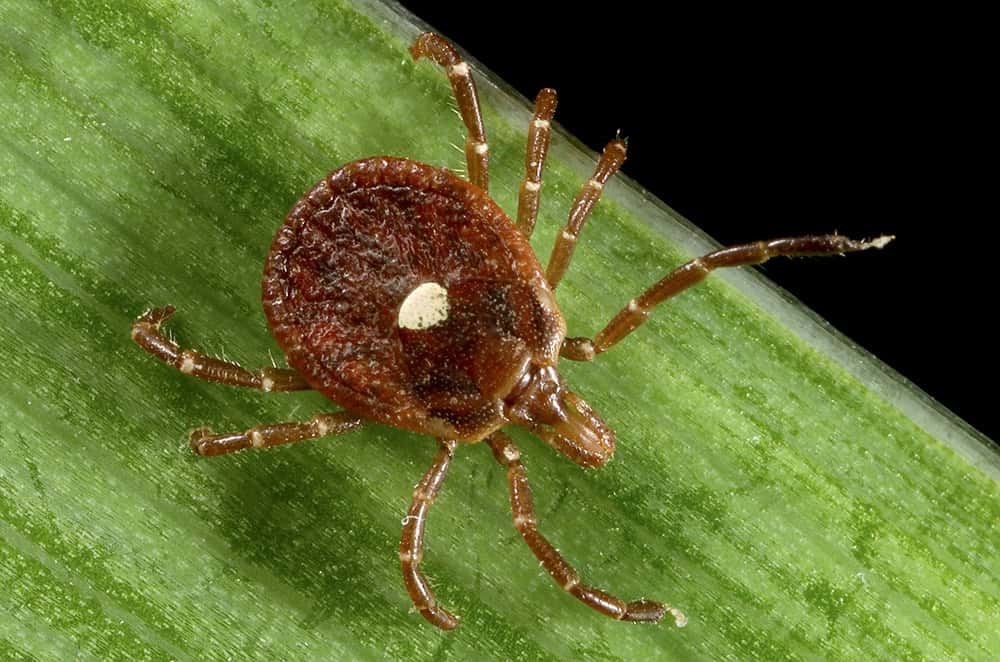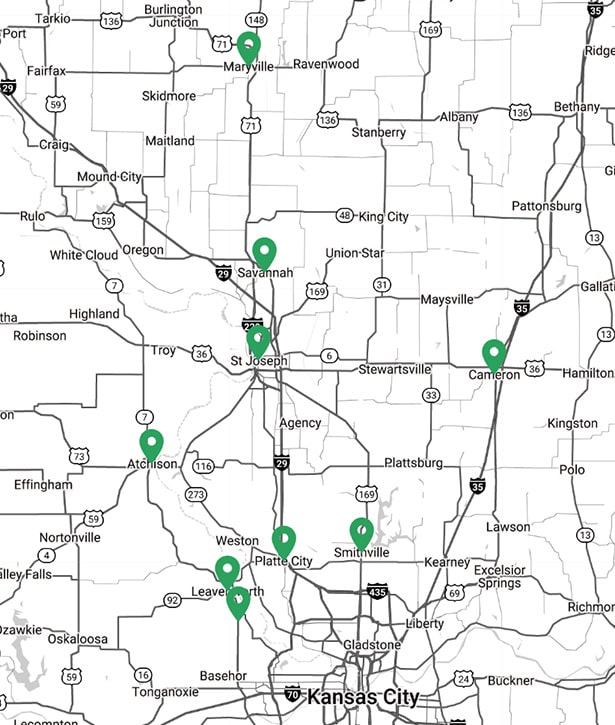
Ticks are actually small arachnids that are ectoparasites (external parasites), living off the blood of mammals, birds, and sometimes reptiles and amphibians. Ticks are vectors of a number of diseases, including Lyme disease, Colorado tick fever, Rocky Mountain spotted fever, Tick paralysis and tick-borne meningoencephalitis, as well as bovine anaplasmosis.
Scientific name: Amblyomma americanum (Linnaeus). The Lone Star tick has eight legs and the body is fused into a single region. Adults are brown to tan, 1/3 inch long before feeding and up to 1/2-inch long engorged. Females have a single silvery-white spot on its back while males have scattered spots or streaks around the margins of the body. Ticks can belong to either of two family groups: “hard ticks” and “soft ticks”.
Ticks develop through four stages of life: egg; six-legged larva or “seed ticks”; an eight-legged nymph; and adult. Tick species like the Lone Star tick are referred to as three-host ticks because they utilize different hosts for each feeding stage. Females occur in late spring and early summer. After feeding, they drop from the host and lay clusters of thousands of eggs in ground litter. Males die soon after mating with one or more females and females die soon after laying eggs. There may be overlapping generations, with peak adult and nymphal activity occurring from March through May and again from July through August. Larvae occur in mid-June or July. It often takes up to 3 years for a complete its life cycle, although the adult stage is relatively short.
Mouthparts are for piercing and sucking. Ticks feed by making a small incision in the skin with their barbed, piercing mouthparts. After inserting their mouthparts they anchor themselves to the host by secreting a fluid that cements their mouthparts to the skin. Lone Star ticks live in wooded areas with underbrush, along creeks and rivers near animal resting places. This three-host tick tends to have a serial host preference: e.g., larval and nymphal stages feed on the blood of small wild animals, birds or rodents, while Adults feed on larger animals, including livestock and deer. All three stages will feed on humans.
Pest Status: One of a number of tick species in Texas; also known as “wood tick”. Tick bites can be painful and cause localized inflammation, swelling, loss of blood (anemia), open hosts to secondary infections and possibly transmit disease agents. The bite of a tick is not initially felt. If the tick attaches near the back of the neck and feeds there a while, injecting salivary secretions, the vertebrate victim may suffer from “tick paralysis”, which may result in total paralysis and death unless the tick is removed.
Locally owned, and family operated, committed to the St. Joseph Missouri community for over 50 years
Our certified and extensively train technicians ensure effective, safe pest management
Over five decades of proven Pest Control experience and unparalleled customer satisfaction.
Custom pest management plans tailored to your specific needs for effective, targeted results.
Guaranteed pest control solutions that ensure lasting results in peace of mind
If you don’t see your city on the map, that doesn’t mean we can’t service your area. Please contact us if you have any questions.
Call Us Today
Learn more about our Community Center

14375 US-71, Savannah, MO 64485
Office Hours
* Appointments are available outside of standard office hours to better accommodate your schedule.